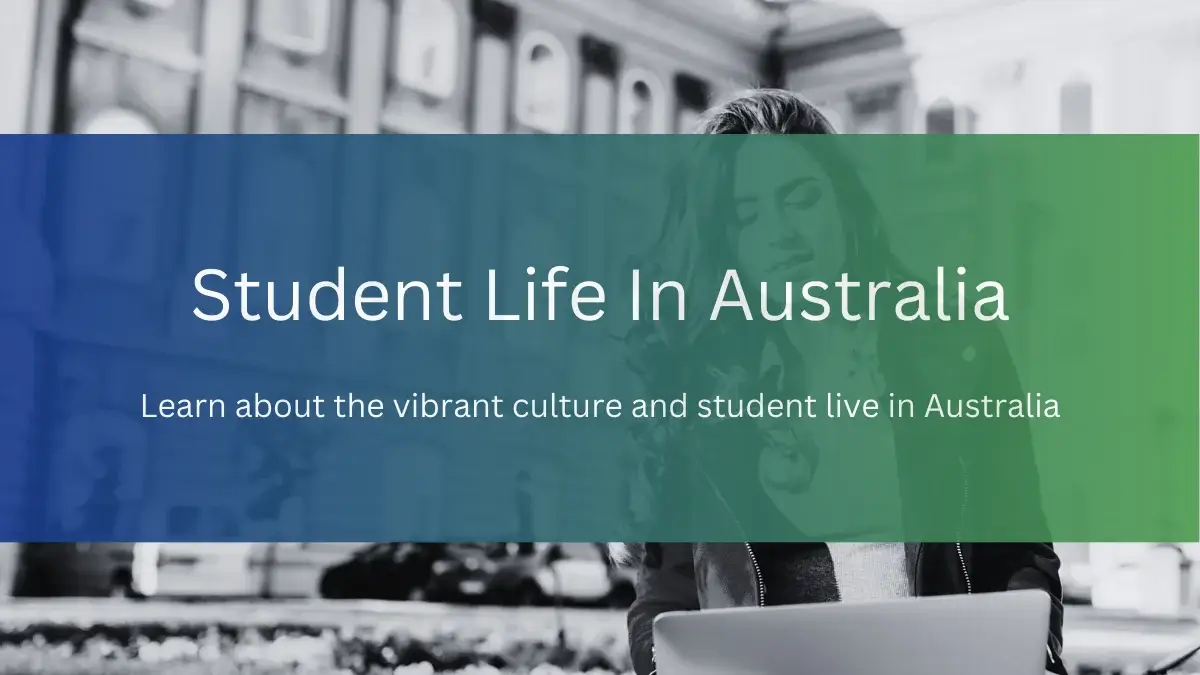A Guide to Australian Culture and Student Life
Australia, “The Land Down Under,” is a country of contrasts and diversity. Its rich indigenous heritage, multicultural society, stunning natural landscapes, and vibrant cities make it a unique and compelling destination. Whether you’re exploring its iconic landmarks, engaging with its diverse cultures, or enjoying its outdoor lifestyle, Australia offers a wealth of experiences to students that reflect its distinctive character and charm.
Multicultural Society: People from all over the world have migrated to Australia, creating a vibrant cultural tapestry. This diversity is reflected in food, festivals, and community life.
Indigenous Culture: The Aboriginal and Torres Strait Islander cultures are an integral part of Australia’s identity. Respect for Indigenous traditions and land is essential, and there are numerous opportunities to learn about and engage with these cultures through art, storytelling, and community events.
Outdoor Lifestyle: Australians love the outdoors. With a temperate climate and beautiful landscapes, activities such as surfing, hiking, and barbecuing are popular. Beaches, national parks, and open spaces are central to Australian leisure time.
Sports: Sport is a significant part of Australian culture. Popular sports include cricket, Australian Rules Football (AFL), rugby, and soccer. Participating in or supporting local sports teams can be a great way to integrate into the community.
Social Etiquette: Australians are generally informal and value egalitarianism. First names are often used, even in professional settings. Punctuality is appreciated, and a firm handshake is a common greeting.
Australia celebrates a variety of public holidays and festivals.
Some key dates include:
- Australia Day (January 26): Celebrates the arrival of the First Fleet in 1788.
- ANZAC Day (April 25): Honors Australian and New Zealand Army Corps who served and died in wars.
- NAIDOC Week: (2nd Week of July) Celebrates the history, culture, and achievements of Aboriginal and Torres Strait Islander peoples.
- Melbourne Cup Day: (First Tuesday of November) A major horse racing event known as “the race that stops the nation.”
- Christmas and New Year: Celebrated with summer festivities, barbecues, and beach outings.
Student life in Australia
- Education System: Australia’s education system is globally recognised for its quality. Universities like the University of Melbourne, Australian National University, and the University of Sydney are renowned. Classes may involve lectures, tutorials, and practicals, emphasising independent learning and critical thinking.
- Student Accommodation: Options include on-campus dormitories, private rentals, and homestays. On-campus accommodation provides convenience and a community atmosphere, while private rentals offer more independence. Homestays provide an opportunity to live with an Australian family.
- Cost of Living: The cost of living varies by city. Sydney and Melbourne are more expensive, while cities like Brisbane, Adelaide, and Perth are relatively affordable. Students should budget for rent, food, transportation, and leisure activities.
- Work Opportunities: International students can work up to 20 hours per week during the semester and full-time during holidays. This can help with living expenses and provide valuable work experience. Typical student jobs include retail, hospitality, and administrative roles.
- Health and Wellbeing: Overseas Student Health Cover (OSHC) is mandatory for international students. Universities offer health and counselling services to support students’ physical and mental well-being. Maintaining a balance between study, work, and social life is crucial.
- Transportation: Public transport, including buses, trains, and trams, is well-developed in Australian cities. Students often receive discounts on public transport. Biking is also popular, with many cities providing bike lanes and rental services.
- Social Life and Activities: Universities offer numerous clubs and societies catering to various interests, from sports and arts to academic and cultural groups. Participating in these can help students make friends and engage with the community.
8 . Safety: Australia is generally safe, but students should still practice common-sense precautions. This includes being aware of personal belongings, knowing emergency contacts, and understanding local laws and regulations.
- Environmental Consciousness: Australians are environmentally conscious, with a strong focus on recycling, conservation, and sustainable living. Many universities have sustainability initiatives and encourage students to participate in environmentally friendly practices.
Important tips for international students
- Engage with Local Culture: Take the opportunity to learn about Australian customs, try local foods, and participate in community events.
- Balance Your Time: Managing time between studies, work, and social activities is crucial for a fulfilling student experience.
- Seek Support When Needed: Utilize university services for academic help, career advice, and personal support.
- Explore the Country: Make the most of your time by travelling and experiencing Australia’s diverse landscapes and cities.
- Stay Connected: Keep in touch with family and friends back home while building a network in Australia.
By understanding and embracing both the cultural nuances and practical aspects of student life, you can make the most of your educational experience in Australia. If you are planning on applying down under, the process becomes much simpler if you work with an experienced consultant. Venturi boasts of several partner universities in Australia, giving you direct access to the best institutions. Fill out the form here – Free Profile Assessment Form – and one of our expert consultants will get in touch with you.




